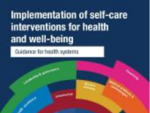UK Study Examines the Impact of New FSRH Guidelines on Use of EC
A recent UK study examined how the use of ulipristal acetate (UPA), levonorgestrel (LNG), and the copper-intrauterine device for emergency contraception changed following the introduction of new UK Faculty of Sexual & Reproductive Healthcare (FSRH) guidelines. The new guidelines recommend that for emergency contraception, health professionals should discuss individual needs and inform women of the different methods, efficacy, adverse effects, interactions, eligibility, and additional contraception. The researchers studied (1) how the use of EC changed, (2) which methods were offered and how this changed, (3) which method was chosen by women who were offered all three UK licensed methods of EC, and (4) the appropriateness of the offer of only LNG. The authors concluded that when comparing the period before the adoption of the new guidelines with that of the period after, more women were offered all three methods, the use of LNG fell (93.0% to 76.0%), and the use of UPA increased (3.0% to 18.7%). Additionally, women were encouraged to exercise choice. However, increasing choice did not lead to a wholesale change from LNG to UPA.

